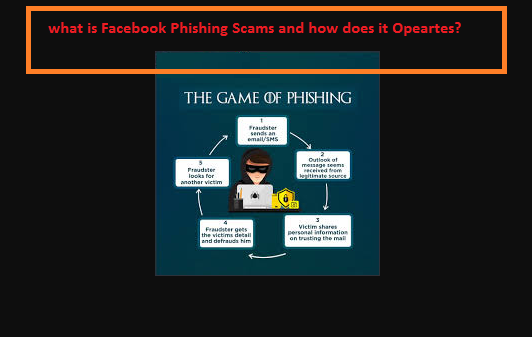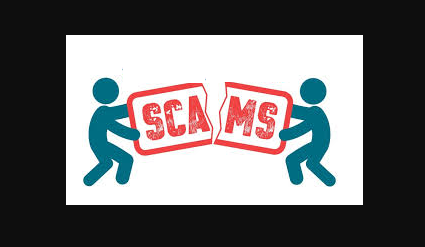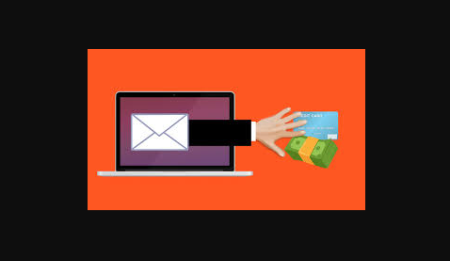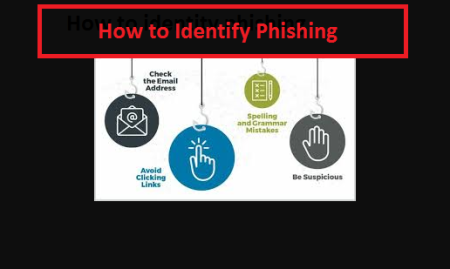What is Facebook Phishing Scams and how to prevent it?

All About Facebook Phishing Scams
Facebook is one of the most popular social networking platforms with billions of active users. This app is commonly used by all the classes of the society. Different people use it for different purposes like some use it for connecting people around the globe and some use it for business purpose. And undoubtedly it’s a wonderful app for exploring the world.
But nowadays such platforms are a major hunting ground for the scammers, fraudsters and hunters. In this high tech world, there are many anti-social elements who believe in making quick money and for that they use to con people. So for this purposes they usually choose social networking sites for flourishing their black market. Whenever you use a social networking site, you get exposed to scammers and fraudsters.
If you are too a Facebook user and have no idea about the Facebook Scams then you really need to read this article. Here in this blog we will broadly discus about the Facebook Phishing Scams.

What is Facebook Phishing Scams and how does it operates?

Facebook Scammers use several ploys to deceive the users such as fake accounts, fraudulent giveaways, Facebook Marketplace scams and so on. Usually Facebook Phishing scams is operated as a misleading message or advertisements. The sole purpose of deceiving users is to harvest people’s personal information or performing malicious activities that pose threat to user’s privacy and security. These Facebook scams are not like clickbait ads which only navigate you to a website to sell something or get higher web traffic. Phishing scams are actually designated to scam you.
Facebook scams often disguised itself as legitimate offers, links to intriguing content, contests, tempt you into sharing or clicking the advertisements or ask you to take part in a fake survey. Once you fall for this scam, the cybercriminals can gain complete access to your Facebook account, your personal data, steal your identity or engage in other nasty activities.
The scammer use numerous ways to con the users, we have illustrated some of the most common Facebook scams below:
Different Kinds of Scams

Phishing Scams:
Phishing scams involve fake emails. Phishing emails contain interesting subjects that creates a sense of urgency among the recipients. These emails also contain suspicious links which redirect the users to a spoofed website.
In some cases, these fake emails states that your account have been compromised and suggest you to validate your account. Once of the most used strategy is to send an email link and instructs the users to reset their Facebook account, this fake email claims that your account has been disabled due security purposes.
The final goal of sending such email to the unsuspecting users is to get their personal details and login credentials. These data is further used by the scammers to exploit the victim financially, emotionally and mentally.
Romance Scams:
In such kinds of cams that scammers poses love interests to their prey. These fake romancers show fake affections with the unsuspecting Facebook users. In order to play victim in from if their prey, the scammers pretend they have gone through a hurtful breakup or give so much attention to woo you. Such kinds of scams are only designated to play on your emotions and gain your trust.
In romance scams, the scammers invest their lot of time as it’s not a short-term effort. But remember in such scams, the scammers eventually ask you to send money. It’s imperative to state that Facebook is one of the most common hunting grounds for catfishing.
The scammers can use a variety of reasons to convince you for sending the money. So you need to understand that this affection is not genuine and you will be left with an empty account and a broken heart.
Fake Job Scams:
In such kinds of scam, the fraudsters approach the users by offering high paying job opportunities. In job scams, the scammers offer a high profile job to their prey a high profile job. And most importantly they don’t ask for any special skills, all they want is the applicant’s personal details.
The scammers ask the applicants to provide their personal information for seeking the job such as your home address, social security numbers and sometimes a copy of our passport and driving license. But you need to be very careful as it’s a ploy to con you.
Fake Charity Scams:
In such kind of scam, the fraudsters earn illicit money in the name of charity. They create fake charity pages, websites and promote charities on the Facebook feed. Generally the ask you to pay via a PayPal account. Therefore it is highly recommended kindly do some research about these websites before paying money. After all it’s your hard earned money.
Shopping Scams:
Many Facebook users use this platform for business purposes. And there’s no doubt that this app plays a major role in boosting the e-commerce platform. Almost all online shops use Facebook to promote their products via sponsored ads.
But unfortunately, the scammers are taking the advantage of Facebook’s credibility and creating fake brand accounts to push fake goods. In order to lure the customers, the scammer offers unbelievable discounts but eventually the shoppers get nothing. The scammers take your money and run.
You’ve won! Scams:
Users often receive messages that claims they have win a prize and in order to claim the possession of the prize the users need to pay a fee to cover shipping or other miscellaneous charges. In some cases, the scammers also ask their prey to scan a QR code. Furthermore, the fraudsters ask the users to provide their personal information or finance related data. But in real, it’s nothing more than a scam.
Facebook Quizzes, Games and Survey Scams:
You might have seen “getting to know you better”, “just for fun” on Facebook. These quizzes, games and surveys look normal but they are not. All these are just designated to harvest your personal information.
The fraudsters use these quizzes to hack user’s Facebook account. These scams are not only limited to data theft it may create deep troubles for the victim.
Non-existent discounts and coupons:
This is one of the easiest ways to gain the user’s attention. In such scams, the fraudsters offer fake coupons. They also use bogus apps that promise great deals. The scammers claim that you will be only able to claim your discounts or redeem your coupon if you install this app. But in actual these apps are specifically designated to install Trojan on your PC. And once this malware is installed in your PC, it can extract your personal details and send it to the cybercriminals.
Consequences of a Facebook Scams:

Facebook is the only platform which has the largest number of active uses more than 3 billion; therefore, the scammers target the Facebook users hoping that a few will fall for their fake schemes. In the earlier section we discussed about some of the most popular scams on Facebook.
Well once you are familiar about the scams it is imperative to know the consequences if you fall for a Facebook scam:
#1. The fraudsters uses dubious links in Facebook direct messages, these malicious links may end up installing hazardous malware on your machine.
#2. Many of the Facebook scams are designated to gain the access of the victim’s account. In this way, they can easily get scam your contacts and may proliferate the dubious links among your contacts. Furthermore, they may also get your personal photos, videos and use it to harm you.
The sole purpose of the scammers is to make illicit money. So either they install malware into your PC for collecting your data or they manipulate you for proving your personal data. This gathered data is eventually used/sold for making money.
How to identity phishing

Nowadays online scams are quite common and be easily identified. So in order to make their ploy successful, the scammers often update their tricks to keep up with the trends. But still it’s quite easy to recognize a scam. You need to understand that the scammers need your personal and financial details to con you. The fraudster uses emails which a serious subject line to grab the recipient’s attention. But eventually they ask for your personal details. We have enlisted some of the most used tactics by the scammers:
- We have noticed some suspicious activity or unauthorized log-in attempts.
- There’s an issue with your account or your payment information.
- You are eligible to register for a government refund.
- Offers a coupon for free stuff
- You need to confirm some personal or financial information.
- Include an invoice you don’t identify.
- Want you to click on a link to make payment.
Methods to protect yourself from Phishing Scams:

- The very first thing you need to do is to set the software to automatic update, so it will install regular updates in your PC. Furthermore, it is highly recommended to use a reliable Antivirus tool to protect your PC from threats.
- Use a strong password to protect your Facebook account and to avoid hacking you can also change your passwords on regular intervals of time. You can also turn on the login alerts to warn you of hacking. You are also suggested to enable 2FA on your Facebook Account.
- Never provide your personal details in response to an unsolicited email/text.
- It is also recommended to review your account statements on regular basis to make sure that all the charges are correct.
- Backup your data on multiple places so that you can retrieve your data easily even in worse situations.
- Do not immediately trust too-good-to-be-true offers on social networking sites, use your common sense and research well before making any choices.
- Simply decline Facebook friend request from anonymous users.
What to do if you get scammed on Facebook

Unfortunately if you already transferred money or disclosed sensitive information to fraudsters in such case you need to follow the suggested guidelines:
#1. The very first thing you need to so is to change your Facebook account password and if in case you are unable to login try to recover your hacked Facebook account.
#2. You should also report this incident to Facebook. Facebook will take the possible action such as deleting the scammer’s profile or banning their account.
#3. Contact your bank to freeze your credit card or other card through which you have made the payment.
#4. You should file an identity theft report with the Federal Trade Commission (FTC). They will definitely take a strong action.
#5. If you have clicked on a dubious link then there’s high possibility your device was infected with malware. So it is highly recommended to scan your system with an anti-malware tool.